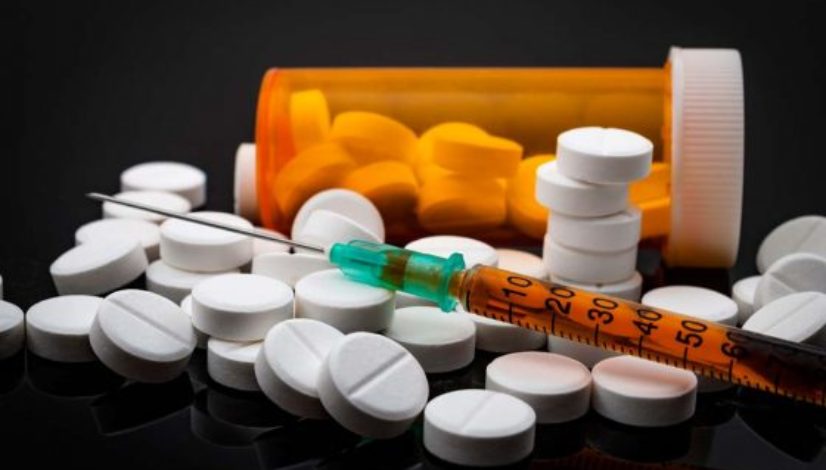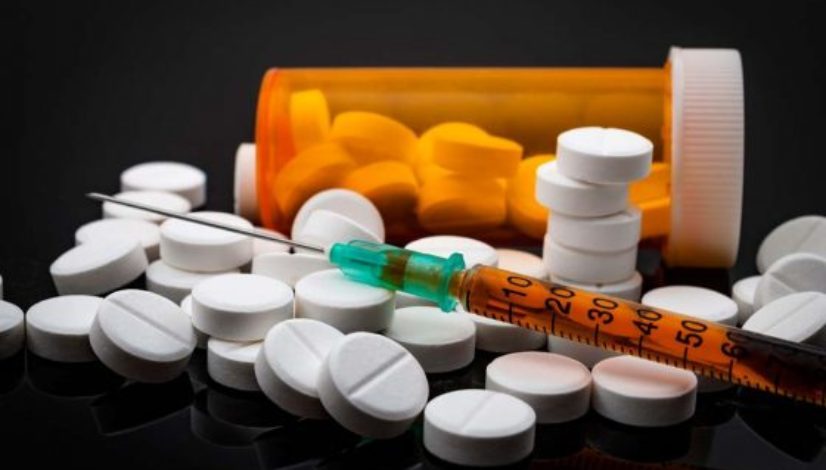Trump declares opioids a public health emergency, stopping short of national state of emergency

Published: Oct 26, 2017, 2:17 pm • Updated: Oct 26, 2017, 2:24 pm
By Jenna Johnson and John Wagner, The Washington Post
WASHINGTON – President Donald Trump declared Thursday afternoon that the opioid crisis – which is killing more than 100 people each day – is a public health emergency.
“Addressing it will require all of our effort, and it will require us to confront the crisis in all of its real complexity,” Trump said during a speech in the East Room of the White House, where he was joined by first lady Melania Trump and New Jersey Republican Gov. Chris Christie, chairman of a presidential commission on combating the crisis.
“As Americans, we cannot allow this to continue,” Trump said. “It is time to liberate our communities from the scourge. We can be the generation that ends the opioid epidemic.”
Related: As Trump prepares to declare opioid emergency, victims of crisis want action more than words
With Trump’s declaration, the federal government will waive some regulations, give states more flexibility in how they use federal funds and expand the use of telemedicine treatment, according to senior administration officials who briefed reporters on Thursday morning.
But the president stopped short of declaring a more sweeping national state of emergency that would have given states access to funding from the federal Disaster Relief Fund, just as they would be following a tornado or hurricane. Officials who briefed reporters said that declaring that sort of emergency is not a good fit for a longtime crisis and did not offer authorities that the government doesn’t already have.
The presidential memorandum signed by Trump on Thursday orders Eric Hargan, the acting secretary of health and human services, to declare a nationwide public health emergency and direct all federal agencies to use any emergency authorities that they have to reduce the number of opioid overdose deaths. The last time that a national public health emergency of this scope was called was in 2009 in response to the H1N1 influenza virus. The emergency will last 90 days but can be repeatedly renewed.
Related stories
- As Trump prepares to declare opioid emergency, victims of crisis want action more than words
- Congress demands answers from DEA on spread of opioids
- Opioid commission members pessimistic that Trump, Congress will act
- Can President Trump solve the opioid epidemic?
- “People die”: Former DEA division chief fought big pharma and lost
In making his appeal, Trump invoked the story of his late brother, Fred Trump, who died of complications related to alcoholism. The president credited his brother for warning him of the effects of drinking and said a concerted advertising campaign could keep people from becoming addicted to opioids and other drugs.
“I learned because of Fred; I learned,” Trump said.
Trump spoke to an audience that the White House said included family members of those affected by the opioid crisis, along with an array of administration officials and elected leaders from around the country.
“We are here today because of your courage,” the first lady told the audience. “The opioid epidemic has affected more than 2 million Americans nationwide, and sadly the number continues to rise…. No state has been spared, and no demographic has been untouched.”
Officials repeatedly said they plan to roll out even more initiatives to address the crisis in the coming days and weeks. They laid out a handful of things that will quickly happen by declaring the public health emergency:
– Patients in isolated areas such as Appalachia will have greater access to opioid treatment through telemedicine and receive prescriptions without seeing a doctor in person, as is generally required under current law.
– The Department of Health and Human Services will speed up its hiring process to have people in place to help states in crisis.
– The federal government will allow states to temporarily shift the use of federal grant funds to target those with opioid addictions.
– The Department of Labor will make Dislocated Worker Grants available to those with opioid addictions and others who were dislocated by this health crisis or who have had trouble finding work because of their addiction.
The government will spend money from the Public Health Emergency Fund, although it has only $57,000 in it.
The officials said that the White House is working with Congress to find additional funding for this crisis – which experts say will cost tens of billions of dollars to properly address – but they declined to share any exact figures.
Leana Wen, health commissioner in Baltimore, which has been battling a stubborn opioid epidemic for years, said she is happy that Trump’s announcement “is drawing attention” to the drug crisis.
But she pointed out that after hurricanes and other national disasters, billions of dollars in relief is quickly made available to victims.
“The same thing should happen when it comes to stopping an epidemic,” Wen said. “We should not have to depend on repurposed dollars that take away from other health priorities.”
The money is needed to expand treatment for people with substance abuse disorders and to provide more of the antidote naloxone to first responders and the public, Wen said. The city is currently paying $70 to $90 for a two-dose pack of naloxone, she said.
Massachusetts Democratic Attorney General Maura Healey said Trump’s action was “woefully inadequate to address the challenges we face.”
“Our communities need federal funding and resources to fight this epidemic,” she said. “Fire and police departments are struggling to afford overdose reversal drugs. Schools and health centers need to expand prevention education to all students. Families need expanded access to substance use treatment. These are actions we can take right now. And this announcement does little to support any of them.”
The Washington Post’s Lenny Bernstein contributed to this report.
Topics: donald trump, opioid epidemic, Trump administration




